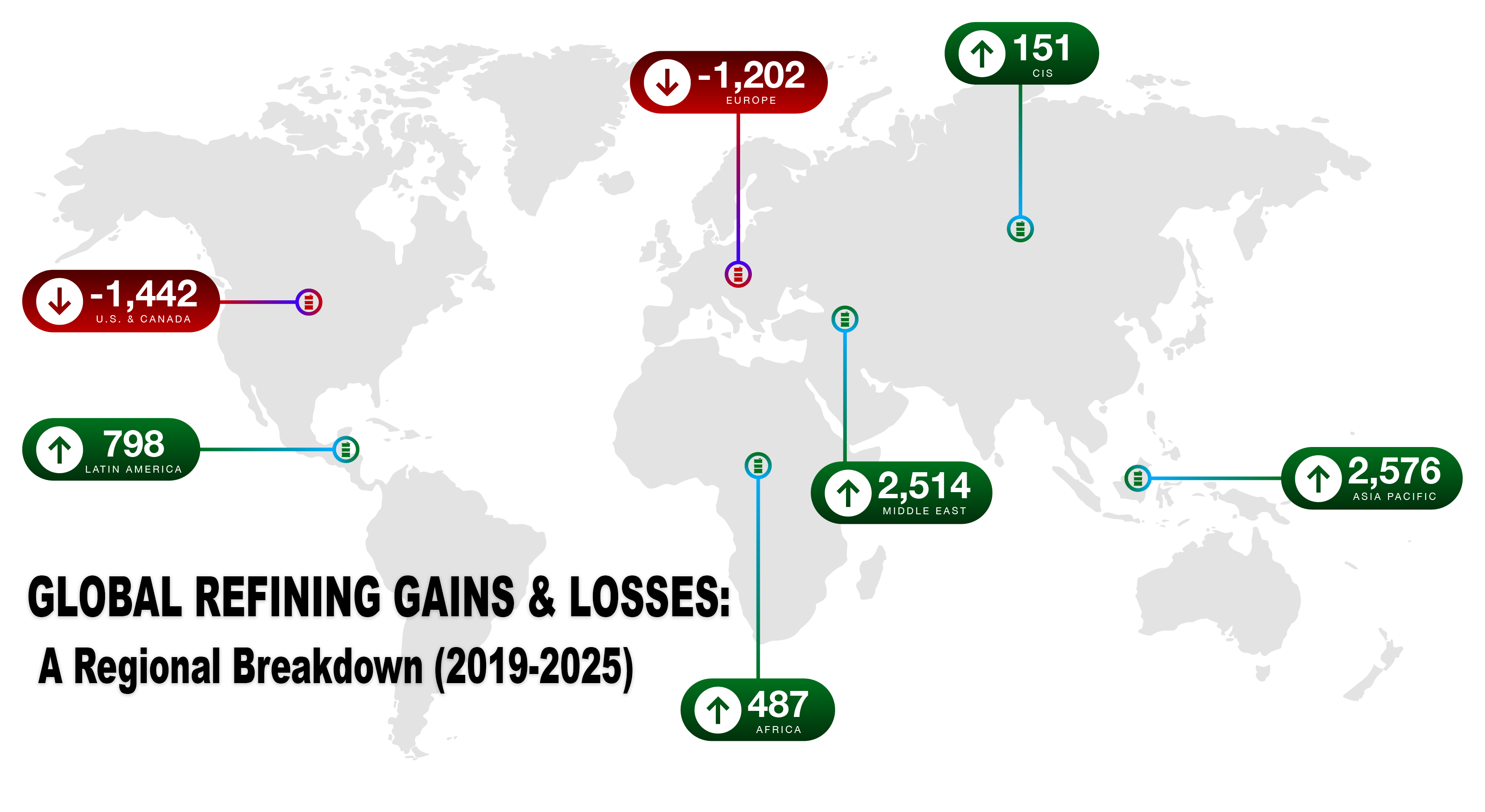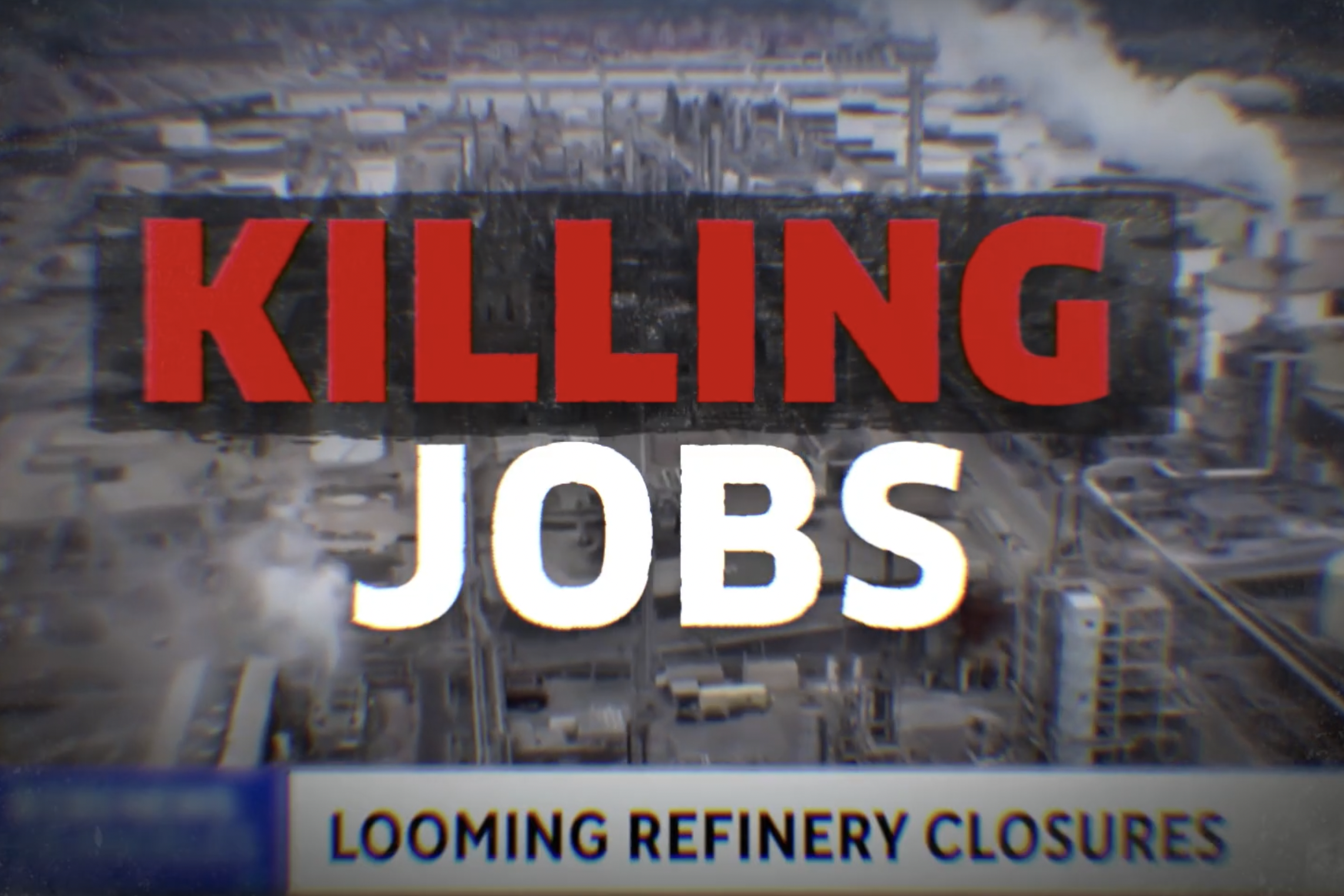Weakened U.S. Refining Capacity: A Fixable Policy Failure
Energy security is national security. Yet, while global regions like Latin America, Africa, the Middle East, and the Asia-Pacific expanded their refining capacities, North America reduced its refining capacity. Since 2019, North America has lost a staggering 1.44 million barrels per day (bpd).
Our domestic refining capacity is in crisis.
United States refining capacity fell to 18 million bpd in 2022, the lowest level since 2014. Despite a modest recovery to 18.2 million bpd in 2023, America’s decline in refining capacity has eroded our ability to convert crude oil into the refined products we use across industries economywide.
The steady increase in global refining capacity is hitting even the largest oil conglomerates, with Exxon's chief financial officer describing how, “the [U.S.] refining business remains under pressure from additional fuel supply entering the market after new refineries opened in different countries around the world,” according to reports.
This crisis is hitting America’s independent refiners even harder. And now, our nation’s reduced capacity could make America even more reliant on other nations to produce finished fuels abroad as we expand energy production at home.
This situation undermines President Trump’s vision to restore American energy independence and dominance.
As President Trump underscored in his Day One executive order, a strong domestic refining sector is essential to ensure national security and economic prosperity. But the refinery closures keep coming.
LyondellBasell’s Houston refinery will shut down in early 2025, and Phillips 66 will cease operations by year’s end. These closures will strip another 407,700 barrels per day from an already strained refining system. Meanwhile, the U.S. remains the world’s largest oil consumer. We are refining less, but demanding more.
This self-inflicted harm is due in part to costly and outdated federal regulations, most notably of which has been the Renewable Fuel Standard (RFS), that have contributed to at least four refinery closures since 2019. This leaves the U.S. dangerously vulnerable to foreign energy market fluctuations, jeopardizing both geopolitical stability and national security.
This crisis is not inevitable. The Renewable Fuel Standard (RFS) is a fixable policy failure but it must be done soon.
The RFS mandates certain volumes of ethanol in the nation’s fuel supply with an overly burdensome regulatory structure that disproportionately burdens independent refineries. Many of these refineries, including several throughout the U.S. Northeast, lack the infrastructure to blend ethanol due to its chemical constraints and must instead buy compliance credits called Renewable Identification Numbers (RINs).
This system is deeply flawed. Each year, the Environmental Protection Agency (EPA) mandates increasingly unrealistic ethanol volumes, creating artificial scarcity and driving RIN prices to unsustainable levels.These inflated costs have bankrupted refineries, terminated jobs, and eroded US energy independence.
What’s more, the RFS ultimately hurts consumers. The RFS drives up gas prices by an estimated 20 to 30 cents per gallon, a direct hit to working Americans.
Reforming the RFS isn’t just a policy priority—it’s a national imperative.
By reducing the ethanol mandate, shifting the RFS obligation from refiners to fuel blenders, or fixing the cost of RINs, we can stabilize the industry, protect jobs, and reclaim control of our energy future. Every barrel of refining capacity lost matters. If we fail to act, we risk not only thousands of working-class American jobs but also the United States' energy security and economic stability.
Fixing the broken Renewable Fuel Standard is a common-sense solution to restore our domestic refining capacity and realize President Trump’s vision for a more prosperous and energyindependent America.



